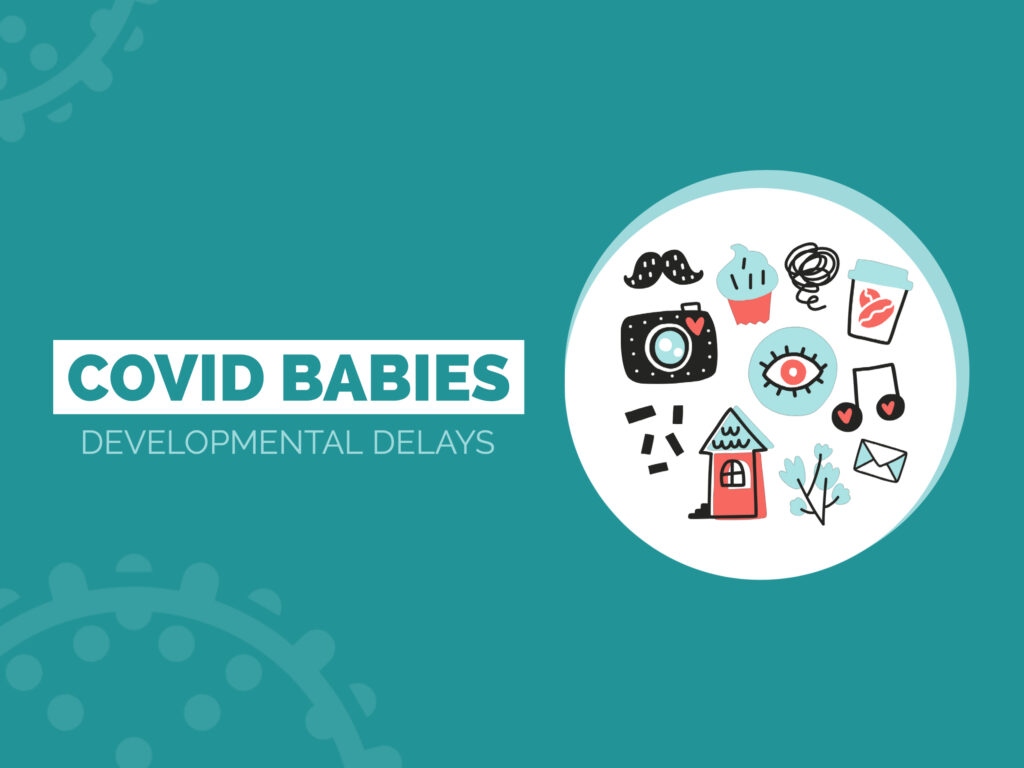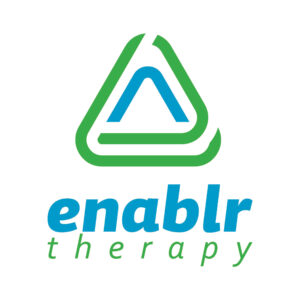
The lockdowns may be in our rearview but the aftermath is finally rearing its head in the form of developmental delays in the babies born before and during the COVID-19 pandemic. To put it into perspective, typically about 1 in 6 children will demonstrate a developmental delay, but a 2022 study found that children born during the pandemic have nearly twice the risk of developmental delays in communication and social development compared to babies born prior to the pandemic.
[2] Tied directly to speech delays, research is also finding an increase in behavioral delays. As their emotional regulation ability is limited, frustration due to the inability to communicate their wants and needs can often be expressed through tantrums, outbursts and physical aggression.
Why is the Pandemic to Blame for These Delays?
Babies born right before the pandemic hit, as well as those born during the height, have an uphill battle when it comes to having the experiences of the pre-pandemic child. The lack of social interaction with peers, mask wearing, increased screen time and general social isolation from society are all considered contributing factors.
Delays in communication can appear as a child that doesn’t say their first word by age 1, doesn’t combine words by age 2 or prefers to use gestures such as pointing instead of talking. Social developmental delays may present as a child not responding to their name, not engaging in play with those familiar to them, or not demonstrating joint attention when an adult is trying to show them something of interest.
Research is still being conducted to determine the long term impact of the social and communication delays brought on by the pandemic but the effect is becoming more evident as Covid Babies are now Covid Toddlers and their skills are more easily assessed at this age. What we do know is that children are resilient creatures and can make great progress with intervention. If you are noticing delays in your child’s understanding or use of language or lack of social interaction, it is important to reach out to their pediatrician to determine next steps. Ultimately, taking action if you are noticing your child is falling behind on meeting their communication milestones is key.
What Can You Do?
Despite being born in the Covid era, there are things you can start doing today to help promote social communication to get your child back on track. Here are some Enablr tips for engaging your child’s social skills:
Read
Spend time reading books to your child, focus not only on the written words but describing the pictures, engaging the child to participate by asking questions and having them point to the illustrations. Use the pause technique to have your child fill in the blank for words in the book.
Limit Screen Time
Whether it be the TV, a tablet or phone, nothing replaces language development as much as social interaction and conversation. The American Academy of Child and Adolescent Psychiatry (AACAP) recommends that children between 18 and 24 months screen time should be limited to watching educational programming with a caregiver. For children 2-5, limit non-educational screen time to about 1 hour per weekday and 3 hours on the weekend days. [1]
Environment
Get out of the house, go to the park, the zoo, the grocery store and use the change in environment to provide an opportunity for learning new vocabulary. Describe what you see, hear, feel and smell. Give your child an opportunity to explore and contribute to the conversation.
Social Opportunities
Set up playdates or join a moms group or play group. Even if your child has siblings, socialization with same-age peers is important in their development and understanding of using social cues, reading non-verbal communication and relationship building through play and mimicking others.
Play
Practice turn-taking in games and in communication while playing with your child. A simple, ‘your turn’, ‘my turn’ activity such as playing hide and seek, building blocks together, or making a craft can embed the principles of turn-taking in your typical play routine.
If you have concerns about your child’s communication skills, go to our therapies page to learn more. Enablr Therapy has a team of talented speech language pathologists that can work with your child and family to promote speech and language skills and help your child reach their full potential.
Resources
- American Academy of Child and Adolescent Psychiatry. (2020, February). Screen Time and Children. Aacap.org. https://www.aacap.org/AACAP/Families_and_Youth/Facts_for_Families/FFF-Guide/Children-And-Watching-TV-054.aspx
- Giesbrecht, Gerald, et al. “Increased Risk for Developmental Delay Among Babies Born During the Pandemic.” PsyArXiv, 3 Feb. 2022. Web.



